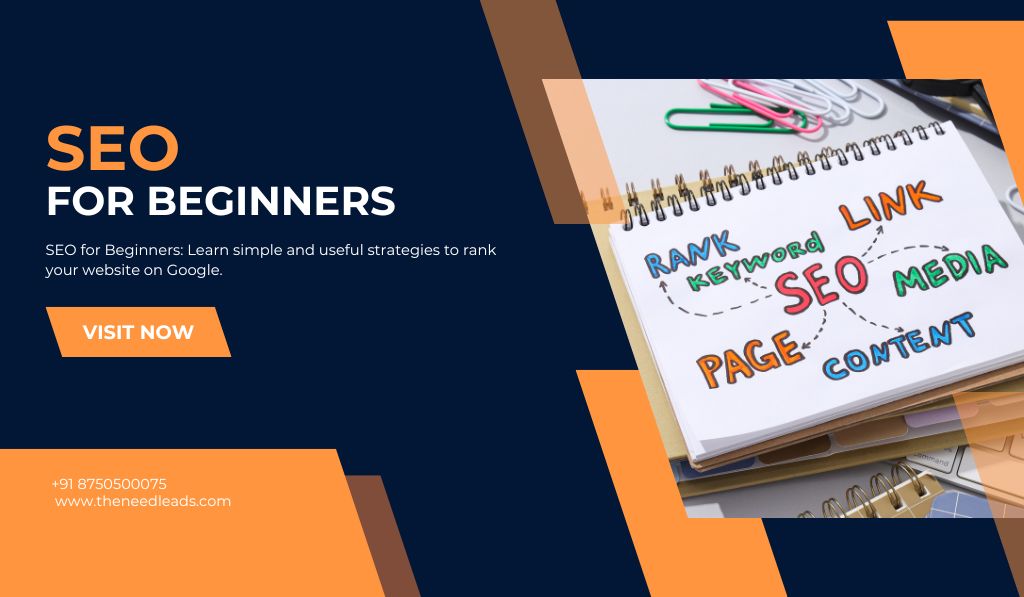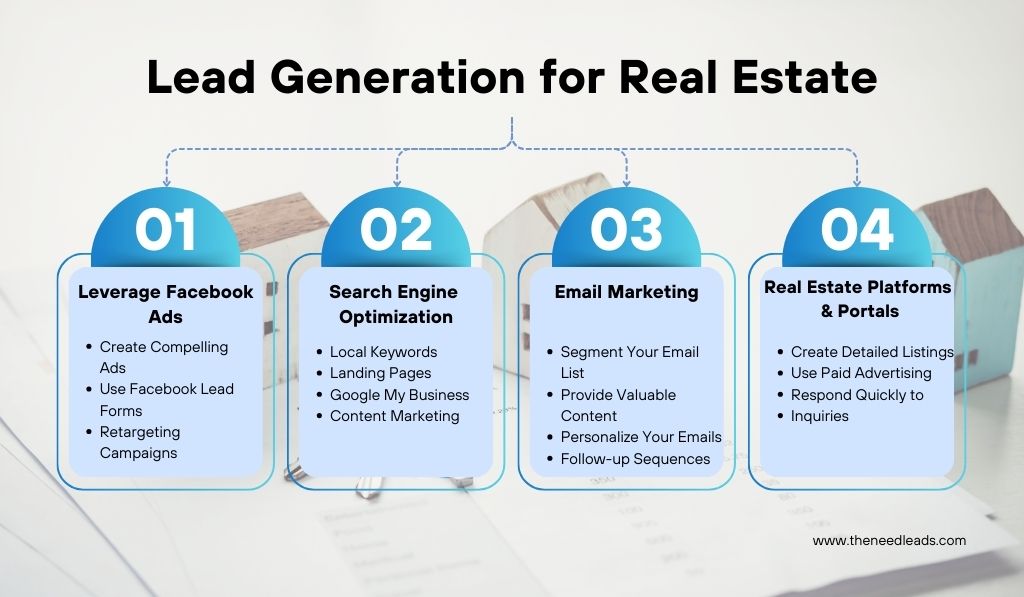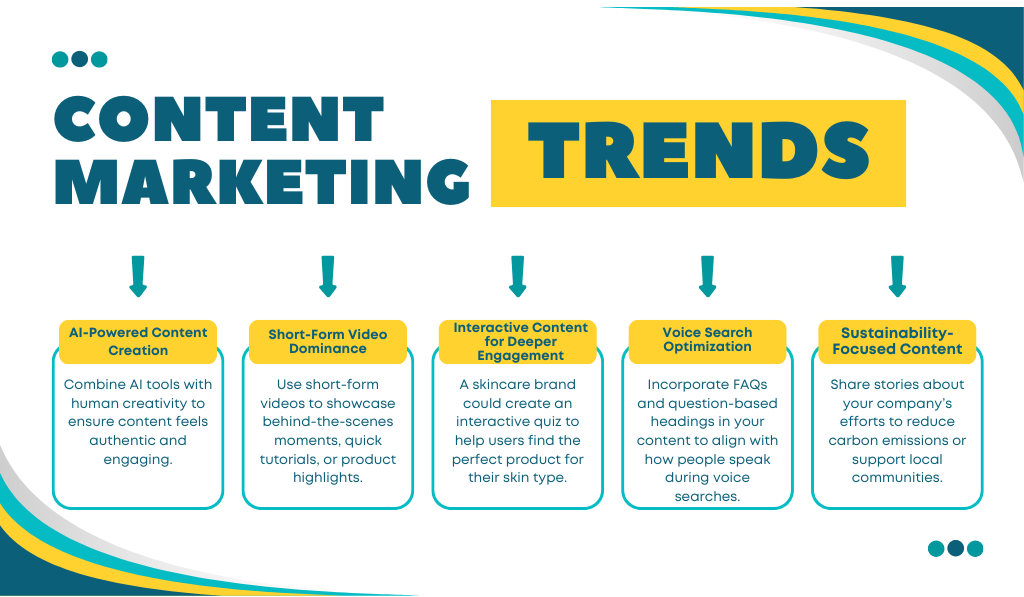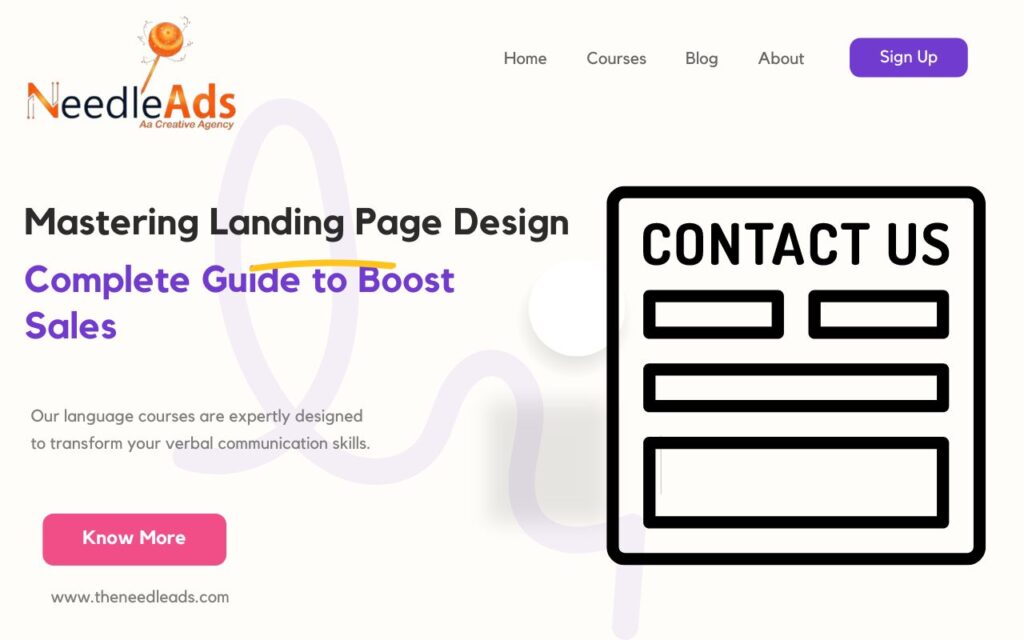In this digital age, simply launching a website is merely the starting point for creating an online presence. From blogs and e-commerce stores to portfolio sites, the most significant difficulty is attracting the desired audience to visit the website. This is where SEO for beginners is applicable. Search Engine Optimization is the method of adjusting a website to rank better on search engines such as Google. If SEO is new to you, worry not. This guide will familiarize you with the basics and walk you through the process of learning how to rank your website on Google.
What is SEO, and Why is SEO Important?
Search engine optimization is the technique of improving the visibility of a website in a search engine. Sometimes, people search for a keyword that is related to your business or content, and it is your goal for them to find your website. Why? Because most users, about 75%, never scroll past the first page of Google. If your website is not ranking on the first page, chances are you will not get any traffic.
If you are new to internet marketing, SEO can seem intimidating and perplexing. However, the goal is much simpler. It focuses on making a website more usable and pertinent to what people are searching for. Doing SEO increases the chances of getting organic traffic. It also helps to create credibility and boost the online presence of a brand.
How Does Google Rank Websites?
It is crucial to know how Google ranks websites before tending to various SEO practices. To rank websites, Google uses a complex algorithm that factors hundreds of sites for their relevancy. Even if the precise algorithm is unknown, we do know what significant factors influence it:
- Relevance: Does your website match the user’s keyword?
- Authority: Is your website credible as well as trustworthy?
- User Experience: Can users easily navigate your website and its content? Is the loading speed adequate?
- Content Quality: Does the content you provide be helpful for the target audience?
All of these areas can be improved for better ranking on Google.
SEO for Beginners: Step-by-Step Guide to Ranking Your Website
Now that you understand the basics, let’s dive into actionable steps to help you rank your website on Google.
1. Keyword Research: Find the Right Keywords
Keyword research is the foundation of SEO. It involves identifying the words and phrases your target audience is searching for. For example, if you’re writing about “SEO for beginners,” you’ll want to include this keyword in your content.
- Tools to Use: Google Keyword Planner, Ubersuggest, or Ahrefs.
- Tips: Focus on long-tail keywords (e.g., “SEO tips for beginners”) as they are less competitive and more straightforward to rank for.
2. On-Page SEO: Optimize Your Website Content
On-page SEO refers to optimizing individual pages on your website to rank higher. Here’s how to do it:
- Title Tags: Include your primary keyword (e.g., “SEO for Beginners: A Complete Guide”) in the title tag.
- Meta Descriptions: Write compelling meta descriptions that include your keyword and encourage users to click.
- Headings (H1, H2, H3): Use headings to structure your content and include keywords naturally.
- Content: Write high-quality, informative content that answers the user’s query. Aim for at least 1,000 words for in-depth articles.
- Image Alt Text: Add descriptive alt text to your images to improve accessibility and SEO.
3. Technical SEO: Improve Your Website’s Performance
Technical SEO ensures that your website is easy to crawl and index by search engines. Key areas to focus on include:
- Site Speed: Use tools like Google PageSpeed Insights to identify and fix speed issues.
- Mobile-Friendliness: Ensure your website is responsive and works well on all devices.
- SSL Certificate: Secure your website with HTTPS to build trust with users and search engines.
- XML Sitemap: Create and submit an XML sitemap to Google Search Console to help search engines index your pages.
4. Off-Page SEO: Build Backlinks
Off-page SEO involves activities outside your website that improve your rankings, primarily through backlinks. Backlinks are links from other websites to yours, and they signal to Google that your content is valuable and trustworthy.
- Strategies: Guest blogging, reaching out to influencers, and creating shareable content like infographics.
- Tools: Ahrefs or SEMrush to analyze your backlink profile.
5. User Experience (UX): Keep Visitors Engaged
Google prioritizes websites that provide a great user experience. Here’s how to improve UX:
- Navigation: Make it easy for users to find what they’re looking for.
- Readability: Use short paragraphs, bullet points, and subheadings to make your content easy to read.
- Internal Linking: Link to other relevant pages on your website to keep users engaged.
6. Content Marketing: Create Valuable Content
Content is king in SEO. Regularly publishing high-quality content not only attracts visitors but also encourages other websites to link to you. Focus on creating content that:
- Solves problems or answers questions.
- It is original and well-researched.
- Includes your target keywords naturally.
7. Monitor and Analyze Your Performance
SEO is an ongoing process. Use tools like Google Analytics and Google Search Console to track your website’s performance. Monitor metrics like organic traffic, bounce rate, and keyword rankings to identify areas for improvement.
Standard SEO Mistakes to Avoid
As a beginner, it’s easy to make mistakes that can hurt your SEO efforts. Here are some common pitfalls to watch out for:
- Keyword Stuffing: Overloading your content with keywords can lead to penalties from Google.
- Ignoring Mobile Optimization: With over 60% of searches happening on mobile, a non-responsive website can hurt your rankings.
- Neglecting Local SEO: If you have a local business, optimize for local searches by creating a Google My Business profile.
- Not Updating Content: Regularly update your content to keep it relevant and accurate.
Results–What is the time frame for Realistic Expectations?
Beginners are usually keen to know, “At what time frame does SEO indicate improvement?” The reality is that SEO is an ongoing endeavor. The good news is that some changes, such as changing existing technical problems, can show benefits faster, but prominently enhancing the rankings usually takes between 3 to 6 months. It is necessary to be patient and apply effort consistently.
Conclusion
SEO for beginners is not rocket science. By adhering to the methods described in this post, you should optimize your site and enhance your position on Google. Do remember that SEO is an unending task–it is very critical to keep researching as the algorithms of search engines change regularly.
From bloggers to small businesses to marketers, all have a common goal of reaching the maximum online audience. Understanding the power of SEO will help meet these goals effortlessly. So what are you waiting for? Apply these tips and let your website shine at the top of the search engines!
Also Read – 5 Proven Methods Lead Generation for Real Estate

























